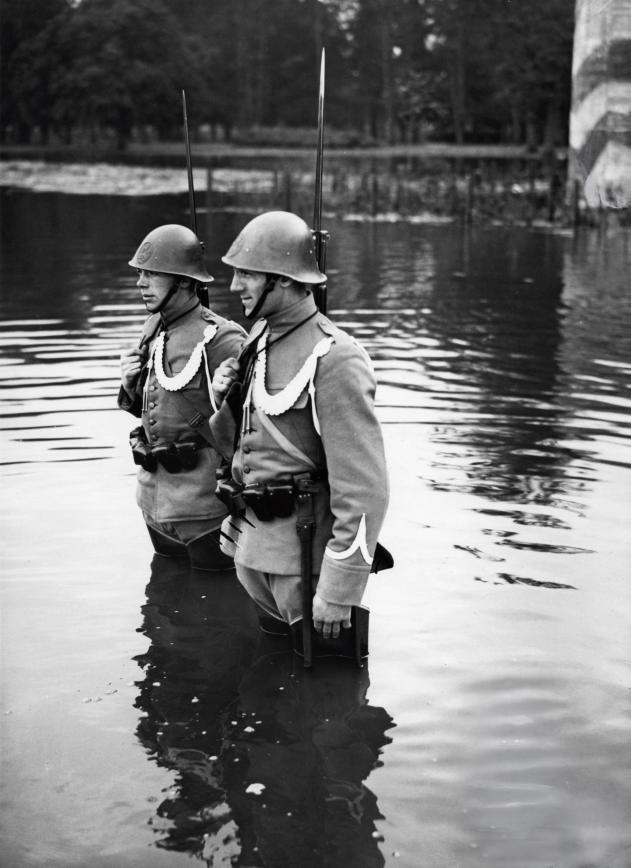|
Rentjong Atjeh
''Rentjong Atjeh'' (Perfected Spelling: ''Rencong Aceh''; meaning ''Rencong of Aceh'') is a 1940 action film from the Dutch East Indies directed by The Teng Chun. Telling of a group who take revenge against pirates in the Strait of Malacca, it starred Ferry Kock, Dewi Mada, Bissoe, Mohammad Mochtar, and Hadidjah. It was filmed near the shore in Batavia (modern day Jakarta) and reused footage from The's earlier work '' Alang-Alang'' (1939). ''Rentjong Atjeh'', inspired in part by the Tarzan films, was a commercial success, although it may now be lost. Plot Pirates have begun roaming through the Strait of Malacca, robbing ships and killing their crews and passengers. On one ship, three children survive: Maryam (Dewi Mada), who is captured and forced to live with the pirate captain (Bissoe), and brother and sister Daud (Mohammad Mochtar) and Rusna (Hadidjah), who escape to the jungle. Fifteen years later Rusna meets with the soldier Ali (Ferry Kock), who falls in love with her; meanwhi ... [...More Info...] [...Related Items...] OR: [Wikipedia] [Google] [Baidu] |
The Teng Chun
The Teng Chun (; 18 June 1902 – 25 February 1977), also known by his Indonesian name Tahjar Ederis, was a Chinese Indonesian film producer. Born to a rich businessman, The became interested in film while still a youth. After a period as an exporter, in 1930 he established Cino Motion Picture to produce films in the Dutch East Indies. In a little over a decade he and his company had released at least 31 films, including some of the country's first talkies. Although he experienced a brief resurgence during the 1950s, after Indonesia became independent, he spent the last years of his life as an English teacher. Biography He was born in Batavia, Dutch East Indies (modern day Jakarta, Indonesia) on 18 June 1902 to a rich businessman name The Kim Ie. As a child he studied at a Tiong Hoa Hwe Koan school. The studied economics in the United States beginning in 1920. However, instead of following his father's footsteps The studied filmmaking at the Palmer Play Theater; ... [...More Info...] [...Related Items...] OR: [Wikipedia] [Google] [Baidu] |
Njoo Cheong Seng
Njoo Cheong Seng (Perfected Spelling: Nyoo Cheong Seng; ; 6 November 1902 – 30 November 1962) was a Chinese-Indonesian playwright and film director. Also known by the pen name Monsieur d'Amour, he wrote more than 200 short stories, novels, poems and stage plays during his career; he is also recorded as directing and/or writing eleven films. He married four times during his life and spent several years travelling throughout Southeast Asia and India with different theatre troupes. His stage plays are credited with revitalising theatre in the Indies. Early life and career Njoo was born in East Java on 6 November 1902; the Indonesian sinologist Leo Suryadinata writes that he was born in Surabaya, while the writers Sam Setyautama and Suma Mihardja record him as having been born in Malang. He received his elementary education at a Tiong Hoa Hwe Koan school in Surabaya. By an early age he had begun contributing to Chinese-owned newspapers; his first literary work, ... [...More Info...] [...Related Items...] OR: [Wikipedia] [Google] [Baidu] |
Karl G
Karl may refer to: People * Karl (given name), including a list of people and characters with the name * Karl der Große, commonly known in English as Charlemagne * Karl Marx, German philosopher and political writer * Karl of Austria, last Austrian Emperor * Karl (footballer) (born 1993), Karl Cachoeira Della Vedova Júnior, Brazilian footballer In myth * Karl (mythology), in Norse mythology, a son of Rig and considered the progenitor of peasants (churl) * ''Karl'', giant in Icelandic myth, associated with Drangey island Vehicles * Opel Karl, a car * ST ''Karl'', Swedish tugboat requisitioned during the Second World War as ST ''Empire Henchman'' Other uses * Karl, Germany, municipality in Rhineland-Palatinate, Germany * '' Karl-Gerät'', AKA Mörser Karl, 600mm German mortar used in the Second World War * KARL project, an open source knowledge management system * Korean Amateur Radio League, a national non-profit organization for amateur radio enthusiasts in South Korea * ... [...More Info...] [...Related Items...] OR: [Wikipedia] [Google] [Baidu] |
Lost Film
A lost film is a feature or short film that no longer exists in any studio archive, private collection, public archive or the U.S. Library of Congress. Conditions During most of the 20th century, U.S. copyright law required at least one copy of every American film to be deposited at the Library of Congress at the time of copyright registration, but the Librarian of Congress was not required to retain those copies: "Under the provisions of the act of March 4, 1909, authority is granted for the return to the claimant of copyright of such copyright deposits as are not required by the Library." A report created by Library of Congress film historian and archivist David Pierce claims: * 75% of original silent-era films have perished. * 14% of the 10,919 silent films released by major studios exist in their original 35 mm or other formats. * 11% survive only in full-length foreign versions or film formats of lesser image quality. Of the American sound films made from 1927 to ... [...More Info...] [...Related Items...] OR: [Wikipedia] [Google] [Baidu] |
Misbach Yusa Biran
Misbach Yusa Biran (11 September 1933 – 11 April 2012) was an Indonesian writer, director and columnist who pioneered the Indonesian film archives. Personal life Biran was born in Rangkasbitung, in the Lebak Regency, to a Minangkabau father and a Bantenese mother. Hal 1. In 1969, he married actress Nani Widjaja. They had six children, two of whom (Cahya Kamila and Sukma Ayu) also went into the film industry. Career Early life Biran graduated from Taman Madya Bagian B, in Jakarta. He first began directing plays in the early 1950s, whilst at school, whilst he additionally wrote film reviews and produced literature works. However, after his graduation, he chose a career in film. Film From 1954-1956, Biran worked for the Indonesian National Film Company (PERFINI) under Usmar Ismail. He began as a script recorder, and later became Assistant Director and member of the Writers’ Board. He rose to the position of Director of National Film Centre H. Usmar Ismail Ja ... [...More Info...] [...Related Items...] OR: [Wikipedia] [Google] [Baidu] |
British Malaya
The term "British Malaya" (; ms, Tanah Melayu British) loosely describes a set of states on the Malay Peninsula and the island of Singapore that were brought under British hegemony or control between the late 18th and the mid-20th century. Unlike the term " British India", which excludes the Indian princely states, British Malaya is often used to refer to the Federated and Unfederated Malay States, which were British protectorates with their own local rulers, as well as the Straits Settlements, which were under the sovereignty and direct rule of the British Crown, after a period of control by the East India Company. Before the formation of the Malayan Union in 1946, the territories were not placed under a single unified administration, with the exception of the immediate post-war period when a British military officer became the temporary administrator of Malaya. Instead, British Malaya comprised the Straits Settlements, the Federated Malay States, and the Unfederated Mal ... [...More Info...] [...Related Items...] OR: [Wikipedia] [Google] [Baidu] |
Serial (literature)
In literature, a serial is a printing or publishing format by which a single larger work, often a work of narrative fiction, is published in smaller, sequential instalments. The instalments are also known as ''numbers'', ''parts'' or ''fascicles'', and may be released either as separate publications or within sequential issues of a periodical publication, such as a magazine or newspaper. Serialisation can also begin with a single short story that is subsequently turned into a series. Historically, such series have been published in periodicals. Popular short-story series are often published together in book form as collections. Early history The growth of moveable type in the 17th century prompted episodic and often disconnected narratives such as '' L'Astrée'' and '' Le Grand Cyrus''. At that time, books remained a premium item, so to reduce the price and expand the market, publishers produced large works in lower-cost instalments called fascicles. These had the added ... [...More Info...] [...Related Items...] OR: [Wikipedia] [Google] [Baidu] |
Surabaya
Surabaya ( jv, ꦱꦸꦫꦧꦪ or jv, ꦯꦹꦫꦨꦪ; ; ) is the capital city of the Indonesian province of East Java and the second-largest city in Indonesia, after Jakarta. Located on the northeastern border of Java island, on the Madura Strait, it is one of the earliest port cities in Southeast Asia. According to the National Development Planning Agency, Surabaya is one of the four main central cities of Indonesia, alongside Jakarta, Medan, and Makassar. The city has a population of 2.87 million within its city limits at the 2020 census and 9.5 million in the extended Surabaya metropolitan area, making it the second-largest metropolitan area in Indonesia. The city was settled in the 10th century by the Kingdom of Janggala, one of the two Javanese kingdoms that was formed in 1045 when Airlangga abdicated his throne in favor of his two sons. In the late 15th and 16th centuries, Surabaya grew to be a duchy, a major political and military power as well ... [...More Info...] [...Related Items...] OR: [Wikipedia] [Google] [Baidu] |
Poetri Rimba
''Poetri Rimba'' (; Perfected Spelling ''Putri Rimba''; Indonesian for ''Jungle Princess'') is a 1941 film from the Dutch East Indies (present-day Indonesia) which was directed by Inoe Perbatasari and produced by The Teng Chun for Jacatra Film. A love story, it tells of a man who rescues a woman from a gang of thieves and escapes through the jungle. Plot Achmad and his group go hunting on an island. After they are separated, Achmad wanders through the island's dense jungles until he is ultimately captured by a gang of bandits under the warlord Kumis Panjang and his right-hand man Perbada. As Perbada prepares to burn Achmad alive, it is revealed that Achmad had once saved Kumis Panjang's daughter, Bidasari, from death; as a result, he is not executed. Although Bidasari is betrothed to Perbada, she and Achmad begin falling in love. In a rage, Perbada captures Kumis Panjang and Bidasari, who are eventually rescued by Achmad. Production ''Poetri Rimba'' was produced by The Teng Chun f ... [...More Info...] [...Related Items...] OR: [Wikipedia] [Google] [Baidu] |
Jakarta
Jakarta (; , bew, Jakarte), officially the Special Capital Region of Jakarta ( id, Daerah Khusus Ibukota Jakarta) is the capital and largest city of Indonesia. Lying on the northwest coast of Java, the world's most populous island, Jakarta is the largest city in Southeast Asia and serves as the diplomatic capital of ASEAN. The city is the economic, cultural, and political centre of Indonesia. It possesses a province-level status and has a population of 10,609,681 as of mid 2021.Badan Pusat Statistik, Jakarta, 2022. Although Jakarta extends over only , and thus has the smallest area of any Indonesian province, its metropolitan area covers , which includes the satellite cities Bogor, Depok, Tangerang, South Tangerang, and Bekasi, and has an estimated population of 35 million , making it the largest urban area in Indonesia and the second-largest in the world (after Tokyo). Jakarta ranks first among the Indonesian provinces in human development index. Jakar ... [...More Info...] [...Related Items...] OR: [Wikipedia] [Google] [Baidu] |
German Invasion Of The Netherlands
The German invasion of the Netherlands ( nl, Duitse aanval op Nederland), otherwise known as the Battle of the Netherlands ( nl, Slag om Nederland), was a military campaign part of Case Yellow (german: Fall Gelb), the Nazi German invasion of the Low Countries (Belgium, Luxembourg, and the Netherlands) and France during World War II. The battle lasted from 10 May 1940 until the surrender of the main Dutch forces on 14 May. Dutch troops in the province of Zeeland continued to resist the ''Wehrmacht'' until 17 May when Germany completed its occupation of the whole country. The invasion of the Netherlands saw some of the earliest mass paratroop drops, to occupy tactical points and assist the advance of ground troops. The German ''Luftwaffe'' used paratroopers in the capture of several airfields in the vicinity of Rotterdam and The Hague, helping to quickly overrun the country and immobilise Dutch forces. After the devastating Nazi bombing of Rotterdam by the ''Luftwaffe'' on 14 ... [...More Info...] [...Related Items...] OR: [Wikipedia] [Google] [Baidu] |
Black-and-white
Black-and-white (B&W or B/W) images combine black and white in a continuous spectrum, producing a range of shades of grey. Media The history of various visual media began with black and white, and as technology improved, altered to color. However, there are exceptions to this rule, including black-and-white fine art photography, as well as many film motion pictures and art film(s). Photography Contemporary use Since the late 1960s, few mainstream films have been shot in black-and-white. The reasons are frequently commercial, as it is difficult to sell a film for television broadcasting if the film is not in color. 1961 was the last year in which the majority of Hollywood films were released in black and white. Computing In computing terminology, ''black-and-white'' is sometimes used to refer to a binary image consisting solely of pure black pixels and pure white ones; what would normally be called a black-and-white image, that is, an image containing shades of ... [...More Info...] [...Related Items...] OR: [Wikipedia] [Google] [Baidu] |
%2C_p50.jpg)



.jpg)


